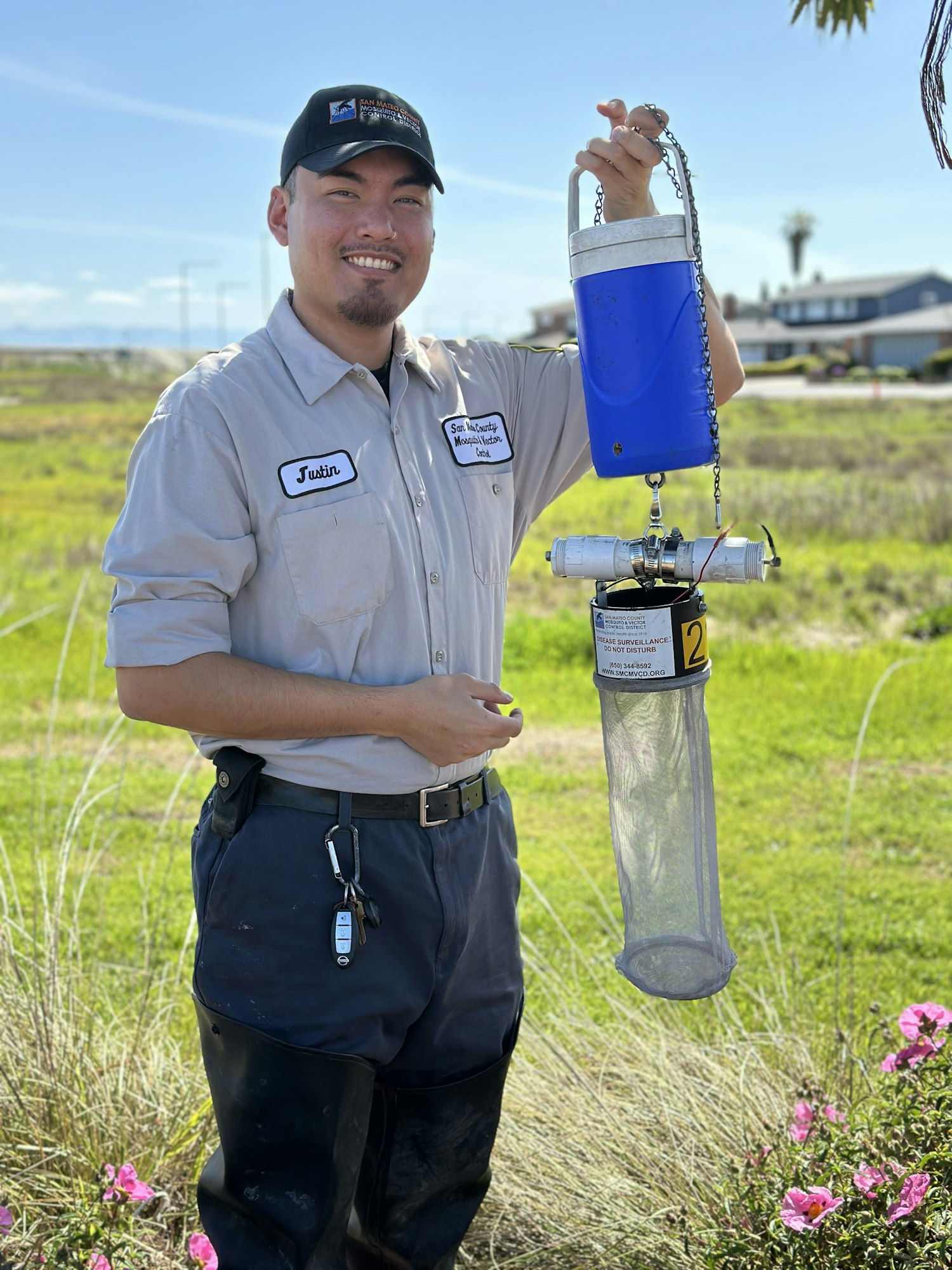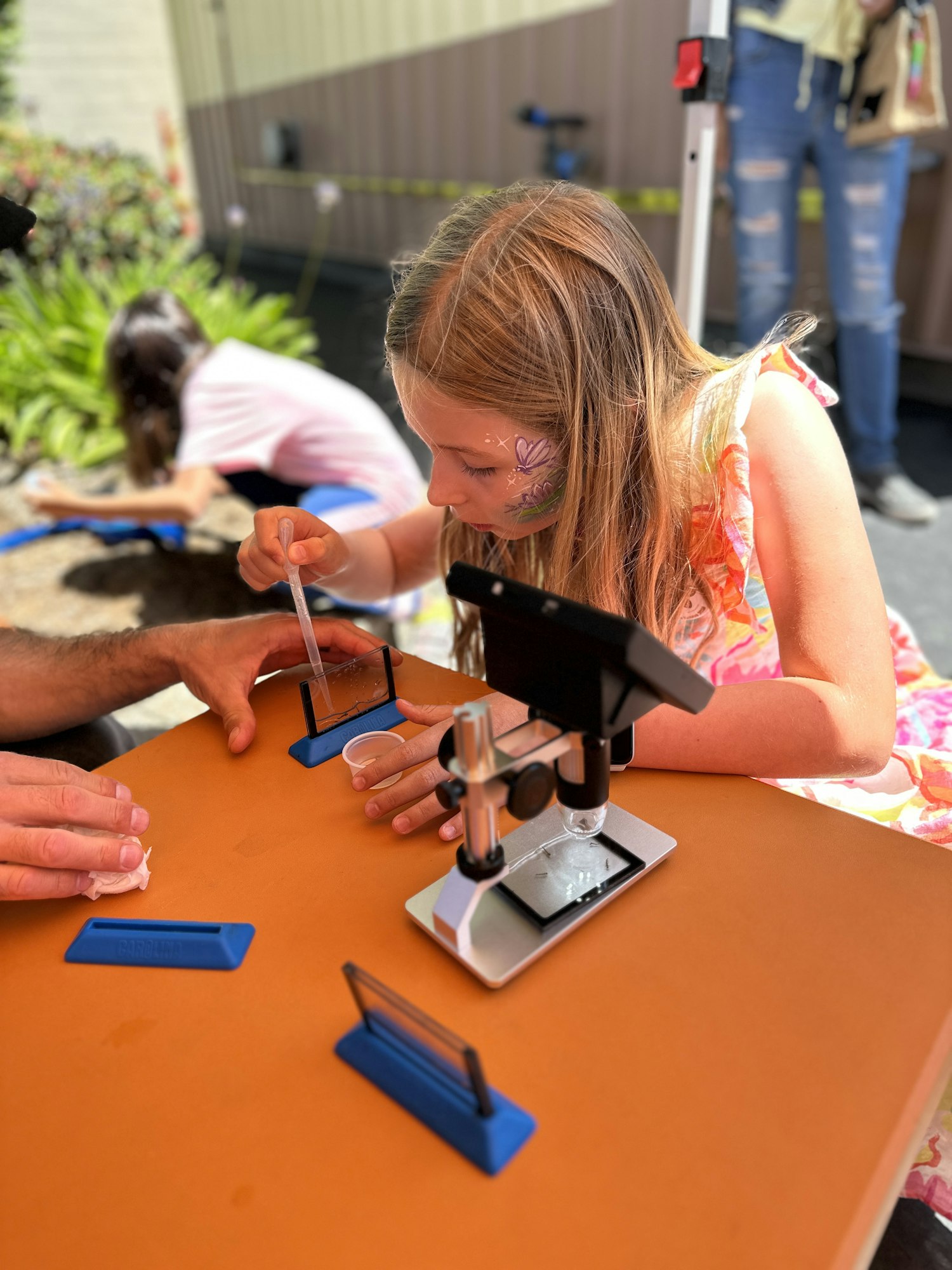July 2025 Newsletter
Staff highlights - Matthew and Justin
We are fortunate to have dedicated staff passionate about protecting San Mateo County residents from mosquitoes and the diseases they can carry. We'd like to let you get-to-know our staff and why our staff love their work. This month, we are highlighting Matthew and Justin.
Click here to learn more about Matthew Nienhuis, Information Technology Director
Click here to learn more about Justin Loman, Vector Control Technician


West Nile virus updates - stay informed

Dead bird reporting and testing
West Nile virus occurs throughout California and is primarily a disease that birds and mosquitoes pass back and forth to each other. Not all birds infected with West Nile virus will get sick, but West Nile virus can make some birds - like crows, ravens, and jays - very sick and even cause death. (An important note as backyard chicken flocks become popular is that chickens do NOT get ill or die from West Nile virus infection.)
Our work during the summer months is particularly focused on reducing the risk of people in San Mateo County getting infected with West Nile virus. One way is through testing dead birds for West Nile virus to see if West Nile virus is in a certain area.
You can report dead birds online or by calling 1-877-WNV-BIRD. If a testable dead bird is reported in San Mateo County, our District staff will pick it up and test it for West Nile virus. 'Testable' condition means certain species of birds that have died within the past 24 hours. Please note that we do not test for avian influenza, as avian influenza is not a disease that is spread by mosquitoes and our laboratory testing is set-up to test only for West Nile virus and a few other viruses that mosquitoes can spread.
If a bird is positive for West Nile Virus, we set up mosquito traps around the location the bird was found to determine if there are West Nile virus-positive mosquitoes in the area.
To learn more about West Nile virus, visit https://westnile.ca.gov/
Current West Nile virus information for San Mateo County
As of early July, residents have reported 357 dead birds in San Mateo County. Of those, 104 were in testable condition and tested in our laboratory. None of the dead birds collected in San Mateo County have tested positive for West Nile virus so far in 2025. Visit our webpage to stay up-to-date with San Mateo County information. To stay up-to-date with statewide information, visit the webpage with California state-wide data.
No mosquitoes have tested positive for West Nile virus yet this year in San Mateo County. However, West Nile virus has been found in mosquitoes in other counties in Calfornia, so if you are traveling don't forget to take your mosquito repellent and follow other tips to prevent mosquito bites and the diseases they can spread.
Ticks are out

In San Mateo County, the ticks found in the summer are usually American dog ticks and Pacific Coast ticks. These two kinds of ticks don’t carry the Lyme disease germ. These ticks are fairly tolerant of hot and dry conditions. They are common just about everywhere there is tall grass in natural/park areas.
In San Mateo County, the western black-legged tick is the tick that can spread Lyme disease. This tick is usually active between November and April when the weather is not as dry. Learn more about the different kinds of common ticks in San Mateo County.
Ticks 'quest' for hosts by climbing to the tops of tall grasses and waiting for someone to pass by. They crawl on and upwards looking for a 'cozy spot' to bite and feed. You can watch this short video of a tick questing.
Follow these tips to stay tick-free:
- Stay in the middle of the trails. Avoid brushing up against any tall grasses that could be on either side of the trail where ticks may be questing.
- Use an EPA-registered tick repellent.
- When you get home, check yourself and pets for ticks. Check your whole body, and be especially sure to check your scalp and places where clothing is tighter - like pants waistlines.
- If you find a tick biting you, remove it using tweezers or a tick removal tool such as a “tick key”.
Open House

Our Open House was held on June 21. We had a great time showing attendees what we do! We hope to see you next year! Sign-up here to receive updates about next year's Open House.
